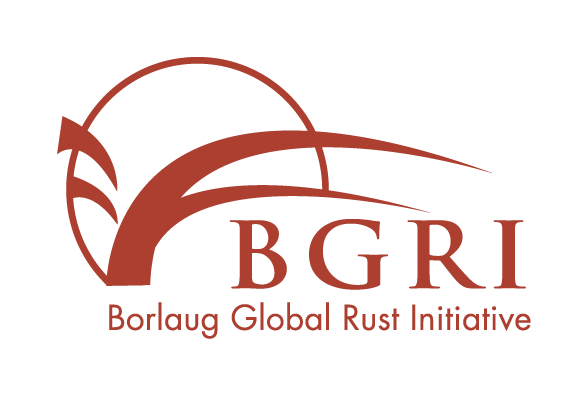Wheat stem rust, caused by Puccinia graminis f. sp. tritici (Pgt), is a reemerging disease that threatens wheat production globally. In Kenya, variants in the Ug99 race group have caused significant yield losses to wheat growers. The objective of this study was to determine the virulence composition and diversity of Pgt in Kenya in 2015–2019. More than 300 stem rust samples were collected, and 248 derived isolates were analyzed. Two new race variants in the Ug99 group were identified in 2019: TTKTT+ and TTHTT. Pgt race TTKTT+ has added virulence to Sr8155B1 in comparison with race TTKTT. Sr8155B1 is an important stem rust resistance gene in durum wheat and also present in some bread wheat germplasm. Forty five percent of advanced Kenyan breeding lines were susceptible to race TTKTT+ at the seedling stage, including Kasuko, a stem rust resistant cultivar released in 2018. More than 100 Ethiopian wheat varieties and breeding lines were also evaluated against race TTKTT+ and 65% were found to be susceptible. In addition, races outside of the Ug99 race group including TKTTF, TKKTF, TTRTF, TTTTF, and PKPTF have been identified in Kenya since 2015. Some of these races have a broad geographical distribution and carry virulence to Ug99-resistant genes including Sr35, Sr37, Sr13b, and Sr1RSAmigo. A selection of Pgt isolates representing the identified races were genotyped with a custom SNP array (PgtSNP 3.0K chip). All variants in the Ug99 race group were confirmed to be clade I, whereas the non-Ug99 races belonged to clades III (TTRTF) and IV (TKTTF, TTTTF, TKKTF). The continuous evolution and dispersal of the stem rust pathogen require continued monitoring of the Pgt population in Kenya and elsewhere to detect potential new virulence that may render important stem rust resistance genes used in breeding ineffective.





